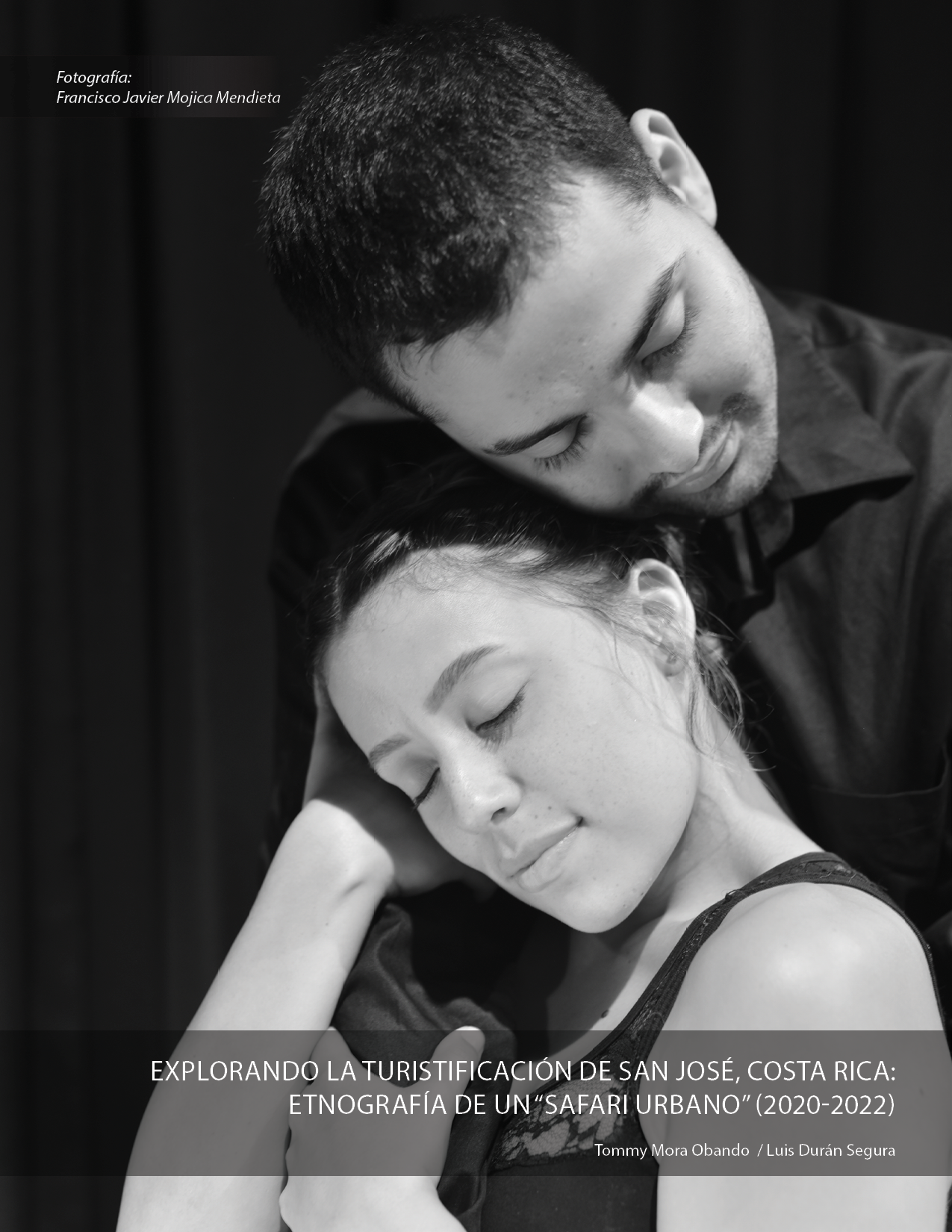Exploring touristification in San José, Costa Rica: ethnography of an “urban safari” (2020-2022)
Main Article Content
Abstract
In San José, the capital of Costa Rica, regeneration and repopulation policies have prompted an aggressive recovery of urban spaces through real estate promotion, increased police surveillance, urban life control, and the creation of a city brand. In this context, the promotion of cultural tourism constitutes one of the main pillars of this type of urban development. The objective of this article is to ethnographically analyze a tourist activity promoted by ChepeCletas, one of the cultural companies that has been responsible for promoting the appropriation of public space for the past 10 years. Methodologically, several participant observations of the so-called "Urban Safaris" were carried out, historical tours of San José organized by ChepeCletas. The results of these observations reveal that: i) agents: there is participation from middle-class youth and accompanying police officers, ii) spaces: a selective route design is created, iii) times: idealized narratives of the past are developed, iv) affections: a feeling of "love" for San José is encouraged. Finally, it is shown that these initiatives, within the context of touristic development, promote exclusionary logics.
Key words: cities; culture; ethnography; public space; tourism.
Article Details

This work is licensed under a Creative Commons Attribution-NonCommercial-NoDerivatives 4.0 International License.

This work is licensed under a Creative Commons Attribution-NonCommercial-NoDerivs 3.0 Unported License.

